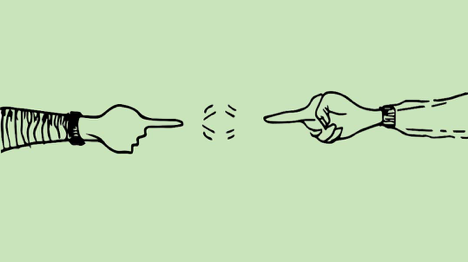So Annoying!
- abbydelouya
- Feb 7, 2022
- 2 min read
Originally Published in "A Better You", Family First/Mishpacha Magazine. Jan. 11 2022

"He was perfect when we were dating, and now I can’t stand some of the things he does. I feel bad, but my husband’s habits cause me to feel so irritated at times. Help!”
Most likely, your spouse didn’t trick you into marrying him. When we’re dating, things look rosy. Then reality hits. There are four different categories of habits that can challenge a marriage:
Inconsiderate habits: leaving clothes and towels on the floor, (or hats and jackets everywhere), being late with no excuse or apology, finishing food or drink items and putting back the empty box.
Sloppy habits: leaving dirty dishes on the table, chewing loudly/talking with food in mouth, nail/skin biting, general hygiene deficiencies.
Relationship habits: constantly looking at the phone, especially when spending quality time as a couple, holding back information/failure to communicate.
Controlling behavior: dictating how everything needs to be done around the house, nitpicking about how a partner dresses, drives, cleans, or cooks.
It’s important to remember that we all have different sensitivities; what bothers you may not be remotely upsetting to your spouse. We all have different tolerance levels, especially for things like mess and noise. Because you’re different people with different upbringings and experiences (yeshivah dorming, anyone?) there will be unwitting irritations. How should you deal with them?
Determine what’s the actual annoyance. Maybe you’re stressed at work, and the empty juice carton was #324 on the list of irritations that day — and your spouse is a far easier target for your stress release than your boss. Maybe it’s not the towels on the floor, but the fact that you cleaned for two hours after the cleaning lady unexpectedly canceled?
Communicate. If you don’t gently share your sensitivities early on, they can become suffocating, leading you to lash out in anger months later. Perhaps your standards of cleanliness or expectations are too high or maybe your style is too much of a departure from what your spouse is used to. Having the conversation will at least allow for insight and compromise.
Timing. Have this conversation when your spouse is receptive. That means not when he’s walking in the door, hungry, and tired, nor when you’ve already shared several concerns with him. We sometimes erroneously believe I might as well share everything that annoys me at once, let’s just get this over with. However, sharing every annoying thing that occurred in the past month or year or decade can feel utterly overwhelming and hurtful, and your spouse may shut down or defensively retaliate.
Make loving suggestions and avoid harsh criticism. Keeping requests and suggestions respectful is a more effective way to get your needs met, and maintain your peace at home.
Try it their way. Maybe his more relaxed style can be liberating.
Make a gratitude list that focuses on the positive qualities of your spouse. Thinking about your spouse as part of yourself or the two of you as a united team can help. In sports, each one has a position to play, and sometimes we have to “take one for the team” in order to win the relationship championship.
Please note that this advice applies to typical annoying habits, not addictions, abuse, or anything else that’s a significant problem in a marriage.



Comments